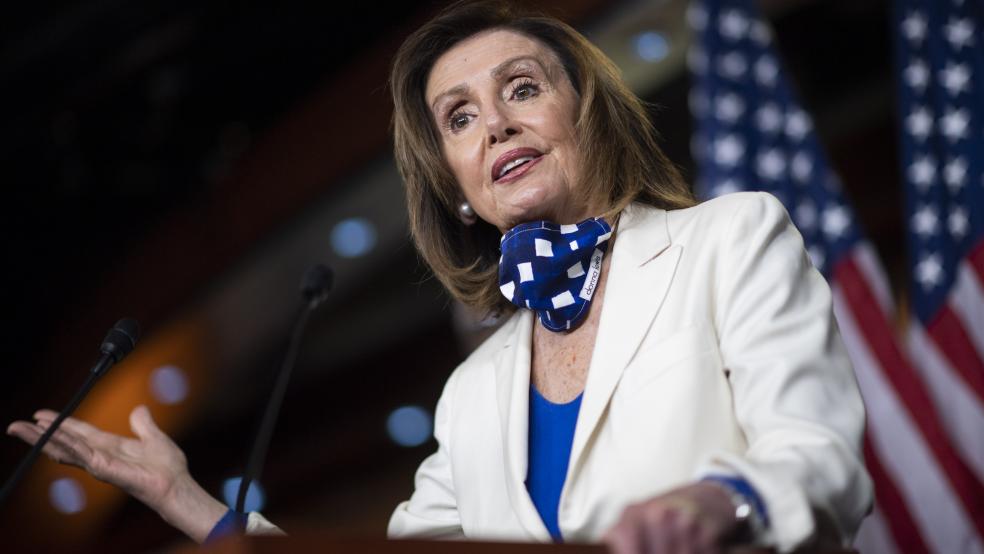Speaker Nancy Pelosi (D-CA) said Tuesday that the House, just back in session after its summer recess, won’t leave for the November elections until a deal is reached on another coronavirus relief package.
“We have to stay here until we have a bill,” Pelosi reportedly told House Democrats on a conference call. The House is scheduled to adjourn on October 2, but Pelosi faces pressure from rank-and-file members reluctant to head home for the final stretch of the campaign season without being able to show action on the pandemic and its economic effects.
But “stay here” doesn’t necessarily mean “stay here.” Democratic Majority Leader Steny Hoyer of Maryland reportedly said Tuesday that lawmakers would be on stand-by next month to vote on any deal and wouldn’t be required to stay in town.
Problem Solver Caucus pitches its own plan: The Problem Solvers Caucus, a bipartisan group of some 50 House members, put out its own framework for a Covid relief deal Tuesday, saying it was aiming to get negotiators talking again. The roughly $1.5 trillion package — it’s ultimate price tag could vary depending on the course of the pandemic — calls for another round of stimulus checks; additional unemployment aid; $500 billion for state and local governments; $400 billion for election assistance; $290 billion for small business loans; $145 billion for schools and child care; and $100 billion in funding for virus testing and other health care.
The Problem Solvers plan would set supplemental federal unemployment payments at $450 a week for eight weeks and then up to $600 a week, but with those payments not to exceed the person’s previous wage, addressing Republican concerns that jobless people were making more in benefits than they were at work.
The lawmakers say their framework is meant to provide enough support for six months, with the state and local funding lasting for a full year.
The plan reportedly developed over six weeks with the knowledge of the White House and bipartisan congressional leadership, but it appears unlikely to gain much traction. The Washington Post reports that the proposal “is likely to meet sharp resistance in the Senate, where Republicans are expected to balk at the price tag,” which is much higher than the roughly $650 billion the GOP provided in its last bill.
Eight Democratic House committee chairs quickly rejected the proposal, too.
“When it comes to bolstering the public health system, supporting state and local governments, and assisting struggling families, the Problem Solvers’ proposal leaves too many needs unmet,” the Democrats said in a statement. “With the general election just 49 days away and the Postal Service sabotaged by the Trump administration, their proposal also abandons our responsibility to protect the life of our democracy.”
What’s next: There are still no signs of renewed talks between congressional Democrats and the White House. Pelosi continues to press for a roughly $2.2 trillion package and to insist that a “skinny” bill like those proposed by Republicans would be insufficient. And Jared Kushner, senior adviser and son-in-law to President Trump, told CNBC on Tuesday that a deal may have to wait until after the election.
“At the same time,” The Washington Post’s Erica Werner reports, “if it becomes clear in coming days that no comprehensive deal is in reach, Pelosi may start holding votes on individual issues such as funding for coronavirus testing, to show House Democrats trying to address the problem.”





